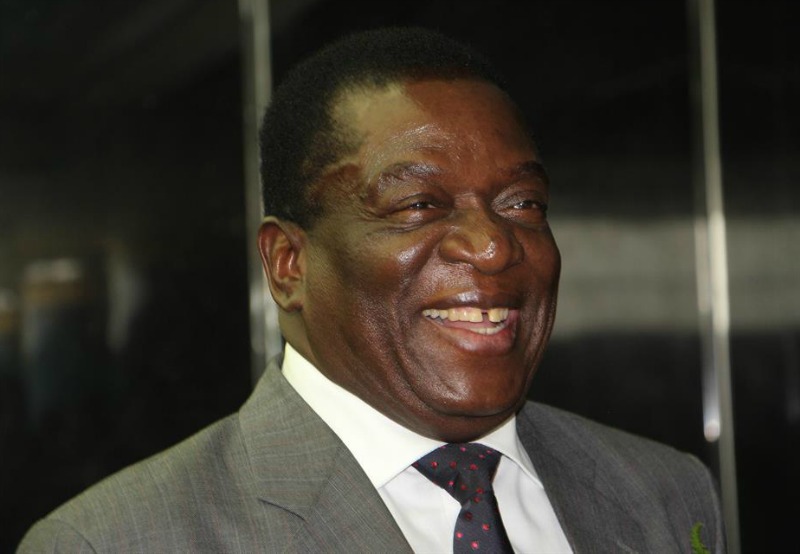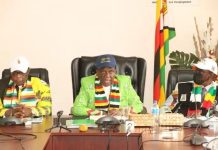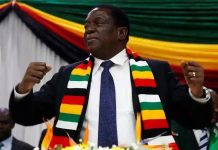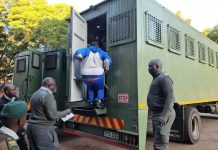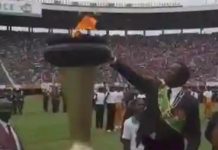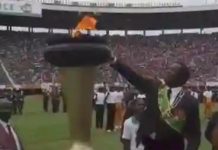PRESIDENT Emmerson Mnangagwa’s 2023 election campaign, which has been underway since the Zanu PF Esigodini Conference in 2018, is increasingly coming under scrutiny within government, the ruling party and security establishments, amid growing concerns that he has failed to inspire an economic turnaround and has been captured by powerful and corrupt cartels bleeding the country.
In briefings this week, senior Zanu PF and government officials also revealed the post-coup administration was in disarray because of Mnangagwa’s alleged failure to ensure there was equitable distribution of the “patronage” cake, hence the ongoing power struggles in the party.
Zanu PF was plunged into turmoil last week following the suspension of deputy youth league secretary Lewis Matutu and political commissar Godfrey Tsenengamu after they accused Mnangagwa’s allies and Zanu PF benefactors — Sakunda Holdings boss Kuda Tagwirei, Green Fuel boss Billy Rautennach and Grain Millers Association of Zimbabwe president Tafadzwa Musarara — of corruption.
The politburo also demoted youth league boss Pupurai Togarepi for showing solidarity with the suspended youths. The decision, however, divided the party as some officials believed the youths had raised genuine issues, which need to be addressed, given the toll that corruption was taking on the economy.
Party officials also believe Mnangagwa has been captured Gupta-style by Tagwirei, whom they say is the major beneficiary of the November 2017 coup, which toppled former president Robert Mugabe. The Gupta scandal rocked South Africa during the last years of former president Jacob Zuma’s presidency. It involved three wealthy Indian brothers, Ajay, Atul, and Rajesh Gupta, who, using their closeness to the presidency, were accused of seizing control of the state apparatus while enriching themselves.
According to findings of the state capture commission of inquiry, the Guptas used their ties to Zuma and, with the help of leading international firms like KPMG, McKinsey and SAP, drained the national treasury of as much as US$7 billion. Following the inquiry, Zuma was forced to resign. McKinsey offered an extraordinary public apology for its role in the scandal, while the Guptas fled to Dubai.
Sakunda has been implicated in alleged abuse of funds under the controversial command agriculture scheme amid claims that there are no records and accountability of how close to US$3 billion was disbursed under the scheme.
“There is serious soul-searching and candid talk within the party. People are asking if the coup promises are being fulfilled and, sadly, Mnangagwa has failed to deliver. Corruption is increasing, but as you know corruption in itself is not a problem in Zanu PF, but the problem is that only a few individuals are being allowed on the gravy train,” an official said.
“There is concern that the economy is worse off than it was in 2017 and there is a genuine worry that Mnangagwa has been captured. There is also anger that a three or four-man kleptocracy has been created following the coup. Unlike during the Mugabe era when the cake was shared amongst many such that those far away from the centre would get crumbs, Mnangagwa has opened the door only to his family and a few individuals.
“That is why the likes of (Chris) Mutsvangwa (Mnangagwa’s former advisor) are angry. Besides Mnangagwa’s failure, he is angry the president’s cartels have shut him out of the energy sector and that is a grievance shared by many.”
Mutsvangwa, in an interview with our sister paper The Standard last weekend, revealed that problems arose in Zanu PF mainly because of fights for control of strategic national resources which are now concentrated in just a few hands.
However, the party’s acting spokesperson Patrick Chinamasa this week took a swipe at Mutsvangwa alleging sour grapes.“I have heard him (Mutsvangwa) say that, but I am not privy to that competition for a resource. The fact that it’s a competition; you cannot say its corruption. Let’s define corruption correctly. If he (Mutsvangwa) has evidence, he must go to Zacc (the Zimbabwe Anti-Corruption Commission). If he thinks that whatever happens in that fight for the resource is corruption, he must go to Zacc and report it. He will be a key witness. In this case he mentions the pipeline, but I don’t understand what the issue is.
It’s like hitting at your rivals. He has no reason to tarnish those who are competing against him and label them corrupt either because you have lost the tender or failed to get a deal,” Chinamasa said.

